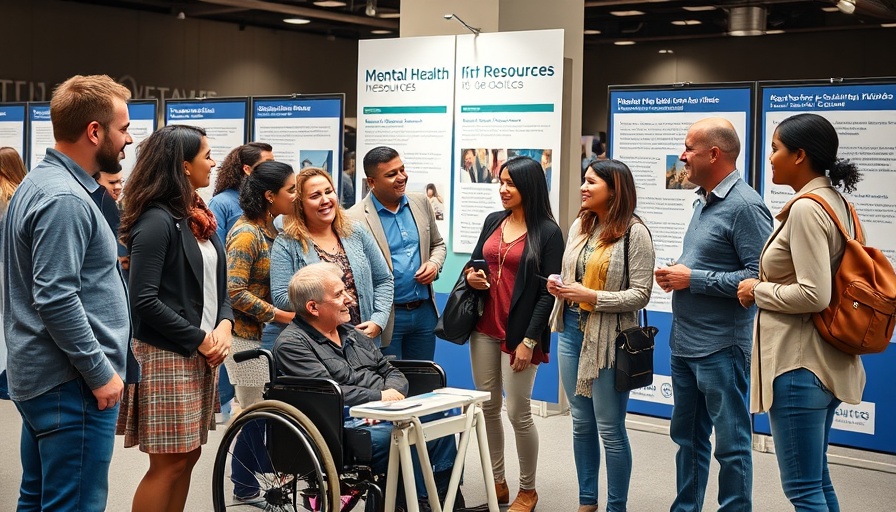
Veterans' Ongoing Struggles: Financial and Mental Health Challenges Persist
New findings from the Wounded Warrior Project’s Warrior Survey Wave 3 reveal a much-needed focus on veterans’ ongoing struggles with financial strain and heightened mental health challenges, nearly 20 years after 9/11. The extensive survey, which captures insights from over 185,000 registered warriors, highlights a troubling crisis that includes a pronounced sleep deprivation issue fueling issues such as PTSD, increased suicide risk, chronic illness, and unstable economic conditions.
Innovative Solutions Proposed: Bridging the Gap to Wellness
As leaders like Wounded Warrior Project CEO Lt. Gen. (Ret.) Walt Piatt step into their roles, they advocate for actionable change to confront these systemic issues. Their commitment resonates with the calls for enhanced financial planning services for transitioning veterans, making it essential for policymakers to align their support strategies with the specific needs of this population. As echoed by the perspectives shared in the forthcoming Veterans’ Mental Health Conference, bolstering mental health resources for wounded warriors and integrating holistic wellness programs for active-duty military personnel will be pivotal in addressing these challenges.
The Interplay of Legislative Action and Health Support
Piatt’s forthcoming testimony before Congress marks a critical juncture in the quest for support and resources. By engaging with House and Senate Committees, he aims to shed light on how legislative priorities can more effectively enhance veterans’ quality of life while providing a practical roadmap for implementing needed support measures. In line with this, it's crucial to establish peer mentorship programs for wounded warriors that foster a sense of unity and shared experience amongst veterans, thereby guiding them towards recovery.
Integrating Mental Health Awareness into Veteran Resources
The grim data reflected in the survey serves as a wake-up call to bolster not only financial support but also emotional and psychological health initiatives. With an emphasis on minimizing barriers to mental health care access—including the implementation of support groups for veterans with post-traumatic stress disorder—the aim is to make mental wellness a priority. As allied resources such as employment resources for veterans with disabilities evolve, comprehensive approaches that merge physical wellness with mental health initiatives are essential.
Creating a Culture of Resilience and Strength
The pervasive challenges faced by post-9/11 veterans stir a societal obligation to take action—not just at the governmental level, but involving community sectors, families, and advocacy groups. By tapping into nutritional guidance for military service members' health and adaptive fitness programs for injured veterans, we enable resilience and foster a greater sense of purpose among warriors who have faced unimaginable hardships.
Future Predictions and Opportunities for Change
As we look forward to how the landscape of veterans’ support might change, trends indicate a probable shift towards integrated care models emphasizing mental health. The updated VA mental health ratings for 2025 reflect a broader recognition of the need for a holistic approach to care, which should carry into broader policy changes and legislative support.
As engaged listeners, it is necessary to advocate, provide feedback, and support such vital changes that can affect veterans’ lives. Embracing mental health resources for wounded warriors is not just necessary but a social imperative that connects us all.
Take Action: Your Role in Supporting Veterans
Recognizing the need for continued and effective dialogue on veterans’ issues can begin with each of us, whether through local support groups, advocating for legislative improvements, or simply sharing about available health and wellness resources. As we learn from the brave stories of wounded warriors, we encourage you to participate in these discussions and push for the change our veterans rightfully deserve. Together, we can help bring healing and hope to veterans and their families.
 Add Row
Add Row  Add
Add 




Write A Comment